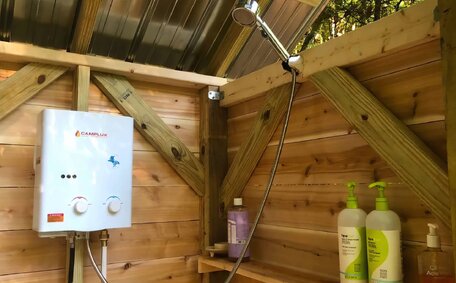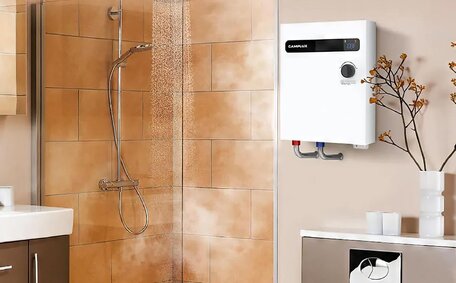Common Household Items that Cause Drain Blockages
- Sanitary products, including tampons, pads, and applicators, are the main culprits for blocked drains
- Baby wipes
- Cleaning wipes
- Paper towels
- Dental floss
- Hair
- Condoms
- Cotton swabs
- Toys
- Food waste and scraps
Household items getting stuck and Drains often become blocked by items such as sanitary products and wet wipes, which resist breakdown due to their materials and structure. Wet wipes, in particular, can cause substantial damage as they tend to gather other debris in their sturdiness, combining with paper towels to form blockages.
Fibres such as hair can intertwine into formidable knots, ranking as a common cause of blockages, entangling with perennial offenders like dental floss and cotton swabs.
Intractable objects like children’s toys are impervious to breakdown, presenting significant challenges for your drainage system. Food particles and fats can combine to block drains with accumulations can lead to significant blockages in your pipes. Such materials obstruct the channels where water drains and sewage transit should occur smoothly, creating the potential for a clogged pipe once they build up once they converge.
Research shows that sanitary products and wipes are significant contributors to annual residential drain blockages. Proper disposal of items such as sanitary products and wet wipes is vital in preventing clogs and maintaining a clear drainage system.
How Foreign Objects Get Into Drains
Foreign objects enter main drains either deliberately or accidentally, often causing blockages. Children may accidentally flush toys or other items, unintentionally causing plumbing issues. Notwithstanding explicit warnings, a host of inappropriate items such as wipes and dental floss are often unduly flushed down toilet systems.
Your sewer line’s vulnerabilities can permit external items to infiltrate, causing complications. Cracked or gap-ridden pipework can give way, admitting small debris or even tree roots which are amongst the major causes of blockages.
Some drains self-siphon when unused, pulling in loose strands and sediment that may lead to blockages. Drains connected to washing machines or dishwashers also struggle with hair that can bind with lint and find its way into the drain during cleaning cycles.
If not disposed of correctly, excessive food waste and grease can clog your kitchen sink over time. Your shower drain contends with common blockage culprits like hair and soap buildup, often compounded by fibres from textiles and cleaning materials. Through regular use, these common materials may inadvertently wash into the drainage system.
Preventing Foreign Objects from Entering Drains
Homeowners can deploy preventive measures to prevent foreign objects from entering drains, which could save on costly repairs:
- Installing drain covers or screens can help in preventing debris such as hair and food remnants from being washed down drain and entering your system
- Use sink strainers and hair catchers in your sink, shower, and kitchen, as well as sink shower combo areas, to intercept unwanted debris
- Avoid using much toilet paper and casting anything besides sensible quantities down your drains to forestall clogging misadventures
- Dispose of food leftovers, fats, and oils into the bin, ensuring your sink drain can stay clear of undesirable clogs
- Place a small waste bin in the bathroom to encourage disposal of sanitary items such as wipes, cotton swabs, and feminine hygiene products
By understanding what damages your pipes and altering your habits accordingly, you can greatly reduce plumbing problems and prevent unsuitable materials from entering your system. Ensure you sort household waste properly for removal to mitigate issues and keep drains clear, aligning with local waste management guidelines.
Combining baking soda and vinegar can effectively dislodge and disperse obstructions caused by grease or fat deposits in blocked pipes. Alternatively, a potent fusion of soda vinegar and scalding water might prove successful to clear blocked passageways from stubborn residues.
Disregarding blocked drains can breed disruption in your household plumbing systems, posing risks to your infrastructure, precipitating additional buildup, and escalating into acute, pricey problems over time. Should home strategies fail, Seek experts to accurately fix blocked pipes and tackle underlying issues.
Methods for Removing Blockages Caused by Foreign Objects
For minor clogged drain blockages, which can often be caused by issues within the pipes, there are a few safe DIY approaches to try, but ensure you call a plumber if these attempts do not prove fruitful:
- Use a drain snake or auger to tackle clogs, but if the problem continues, don’t hesitate to seek professional assistance. Gently introduce it into the pipe, twirl the handle, then retract with caution. Repeat until the clog is loosened and water flow is restored to normalcy. Be very careful not to scratch or rupture the drain walls.
- Pour boiling water gently into the drain to act as a solvent for grease and loosen debris, being careful to avoid causing further blockages with aggressive pouring. Allow it to sit for 15 minutes then rinse with cold water to ensure a complete water through passageway.
- Make a vinegar and baking soda drain cleaner mixture in a sealable container. Vinegar helps loosen deposits while baking soda bursts open clogs with carbon dioxide fizz. First pour in 1 cup baking soda, followed by 1 cup household vinegar, quickly seal the mixture and leave it sit for 10-20 minutes to activate, then flush down with hot water.
When DIY endeavours flounder, it’s time call in professional service as your backup plan for any recurrent pipe obstructions. They have industrial grade tools and methods for safely removing severe or complicated clogs:
- Hydrojet drain cleaning, targeting common blocked drain issues with highly pressurized water jets above 4000 PSI, stands as one of the most effective methods to purify your drain walls and reclaim a smooth running plumbing system free of tough blockages. This highly effective method, however, requires specialized equipment mounted in a service vehicle.
- Mechanical drain cleaning employs a plumbing snake equipped with a cutting tip to slice through obstructions, including tree roots. As it’s retracted down the pipe, the blades shear off intruding roots, deposits or lodged objects to clear out drains up to 100 feet long.
- Chemical drain cleaners use caustic soda or concentrated acids to dissolve thick grease clogs, mineral deposits, roots and tree cuttings. Trained technicians can isolate application only to affected sections of pipework.
Attempting unsafe DIY methods or using non-approved chemicals can worsen the effects blocked plumbing systems are already dealing with and risk environmental contamination that professionals carefully avoid.
When to Call a Professional Plumber for Drain Issues
It’s important to call a professional plumber right away if you experience any of the following with your drains:
- Water reversing its journey from drains, defiantly surfacing in your sinks, baths, or lavatories, is where you could wind up facing more severe blockages
- Gurgling sounds coming from pipes
- Noticeable drops in water pressure
- Persistent bad odours coming from drains
- Multiple attempts to clear a clog have failed
With over a decade of proficiency, our team at Cranebrook Plumbing boasts a robust reputation to deal blocked drains proficiently. We offer 24/7 service with a commitment to a swift 1-hour response time for any drain-related issues. Call us at 1300 349 338 or email [email protected] to book an appointment.
Blocked drains can result in potential damage without proper intervention and treatment. Our hydrojetting and mechanical drain cleaning services can quickly and safely clear out any obstructions. Continuing to use a malfunctioning drainage system also raises the risk of structural damage, leaks, floods and contamination on your property.
Rely on our accredited technicians to discern the central problem and swiftly get back your drains to a free-flowing state.
The Importance of Regular Maintenance and Correct Drainage System Usage
Regular drain maintenance and correct plumbing usage yield multiple benefits:
- Saves money by minimising the requirement for emergency repairs, thus curtailing expenses from water damage.
- Avoids health hazards to your home environment - Blocked drains can allow sewage backflows, methane gas buildups, bacteria growths, and vermin infestations
- Extends system lifespan - Routine inspections are vital, as they catch minor issues that might escalate into major problems for your main sewer line
- Improves functionality - Keeps drains freely flowing, pipes clear, and water pressure optimal
We recommend scheduling twice-yearly drain inspections with our team at Cranebrook Plumbing. Our technicians will assess your kitchen bathroom drainage system, clear current obstructions, and provide advice on necessary repairs or upgrades.
Proper usage is key to preventing avoidable drainage issues:
- Restrict flushing to toilet paper and waste from your body, preventing other items from wreaking havoc down drains
- Collect grease fat in containers before washing dishes to help prevent blocked drains from forming
- Make sure to use sink strainers to catch food scraps and hair, common culprits that cause blocked drains, before they navigate into your plumbing system
- Don’t pour chemicals like paint thinners, pesticides or motor oils into drains
Correct habits eliminate contaminants and debris that commonly cause blockages. Contact Cranebrook Plumbing today on 1300 349 338 to optimise your drainage systems.
Diagnosing Drain Blockages Caused by Foreign Objects
Properly diagnosing a drain blockage is essential before attempting clearance or enlisting professional help. There are a few signs that indicate your drain is obstructed by foreign objects:
- Water draining very slowly is often a sign blocked drains are present
- Gurgling sounds coming from pipes
- Unpleasant sewage odours rising from drains
- Toilets, sinks or baths taking longer to empty
- Observable water level stagnation in or around drains
Begin by using a plunger to attempt clearing the clog. Inspect bends and pipe connections with a small mirror to spot and remove visible blockages, resolving plumbing issues. Straighten a wire coat hanger to manoeuvre inside the drain and dislodge any blockages.
For accurate diagnosis, our technicians at Cranebrook Plumbing conduct a cctv drain inspection using camera technology. A specialised waterproof camera on a flexible cable feeds down the pipes to pinpoint any foreign objects, grease accumulations, collapsed sections or physical damage preventing drainage.
This precise diagnosis empowers our experts, who can develop tailored solutions. Our upfront repair quotes and advice cover the methods and equipment required for prompt and safe resolution, such as high-pressure hydrojetting, mechanical extraction, or chemical treatment.
Potential Home Remedies for Clearing Minor Drain Clogs
For small drain clogs, homemade remedies like boiling water, baking soda, and vinegar can provide chemical and mechanical means to break up and dislodge blockages without damaging pipes.
Pour a kettle or pot of boiling water down the drain to melt grease deposits and flush debris. Allow it to sit for 10-15 minutes before rinsing with cold water for a full flush through.
A baking soda and vinegar mix can trigger a reaction that helps remove obstructions, benefitting even your water heater system. First pour 1 cup baking soda down the drain, followed by 1 cup vinegar. The carbon dioxide fizzing displaces stuck gunk and clears out organic material.
Running water for 5-10 minutes after applying home remedies helps to flush out loosened debris. Repeat applications may be necessary for more stubborn clogs.
However, if DIY efforts are fruitless, it might be best to call a plumber who can properly diagnose and resolve persistent blockages.
Seeking Professional Help for Major Blockages and Damages
When multiple DIY efforts to unblock a drain fail, it’s vital to engage a professional plumber. Recurring clogs suggest serious obstructions or pipe damage beyond the scope of typical home maintenance.
Cranebrook Plumbing possesses industrial-grade equipment plus decades of expertise tackling all magnitudes of drain blockages. Our technicians perform CCTV drain inspections to accurately diagnose problems. We utilise specialised hydrojetting and mechanical drain cleaners to eliminate even the most stubborn clogs.
We can repair pipes compromised by invasive tree roots or eroded walls. If sections require replacement, we offer pipe relining to restore functionality avoiding major excavation works. Our master plumbers can rectify any downstream plumbing damages like leaks or backflows.
Don’t wait - severe blockages risk overflow contamination and sewer line deterioration. Trust Cranebrook Plumbing for emergency assistance and drain restoration. Call 1300 349 338 for same-day service.






